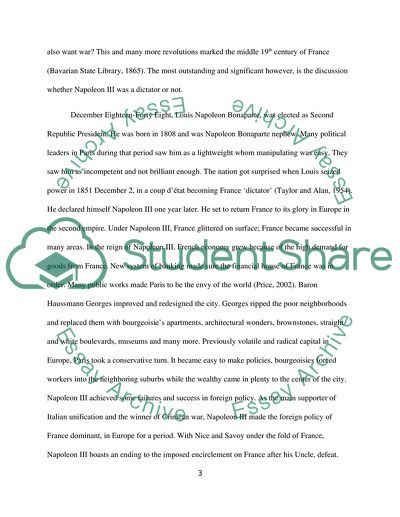Cite this document
(“The Turbulent Century: France 1814-1914 Essay Example | Topics and Well Written Essays - 3500 words”, n.d.)
Retrieved from https://studentshare.org/social-science/1640144-the-turbulent-century-france-1814-1914
Retrieved from https://studentshare.org/social-science/1640144-the-turbulent-century-france-1814-1914
(The Turbulent Century: France 1814-1914 Essay Example | Topics and Well Written Essays - 3500 Words)
https://studentshare.org/social-science/1640144-the-turbulent-century-france-1814-1914.
https://studentshare.org/social-science/1640144-the-turbulent-century-france-1814-1914.
“The Turbulent Century: France 1814-1914 Essay Example | Topics and Well Written Essays - 3500 Words”, n.d. https://studentshare.org/social-science/1640144-the-turbulent-century-france-1814-1914.


